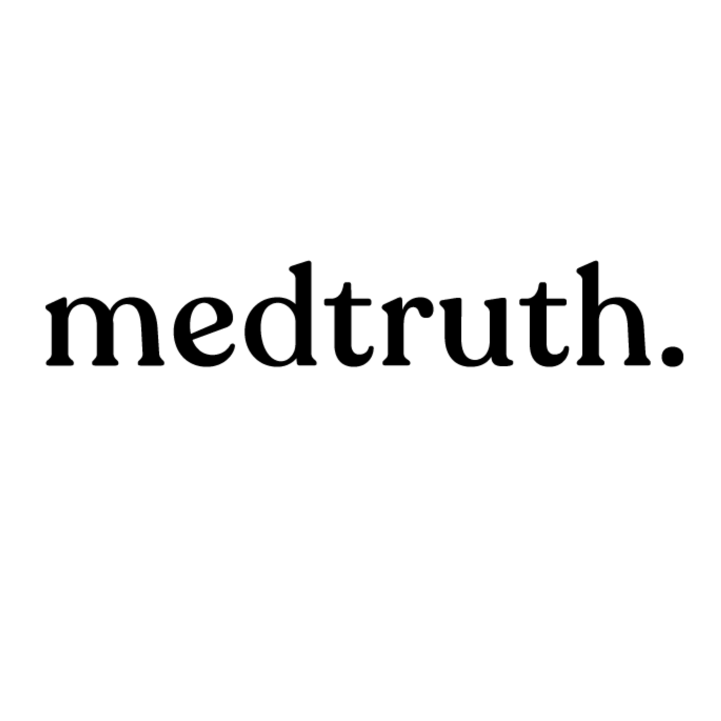Paris is Burning (1990)
Documentary. Available on YouTube.
“Paris is Burning” documents one of history’s most influential subcultures: New York City’s ballroom scene in the 1980s.
Before drag was accepted as primetime television fare, underground LGBTQIA+ communities began gathering in secret celebration in the late 19th century. “Paris is Burning” represents the point in history when ballroom was ushered into the mainstream.
The film explores the facets of gender, sexuality, race and class that make the elaborate culture of ballroom competitions a sanctuary for community and fierce competition. While chronicling the glamorous electricity of ballroom, the films also highlights the inherent dangers of identifying as gay, transgender, non-white or all of the above in America.
More than just an art form, ballroom has always been a safe haven for disenfranchised queer Black and Latinx youth. The film’s vibrant personalities exhibit strength and ambition, but also reveal the pain of navigating survival and loss during the AIDS crisis and violence against transgender women and sex workers, especially.
While many celebrate the film, it’s important to acknowledge its outsider perspective — the film’s director, Jennie Livingston, is a white woman. Its cultural significance is undeniable, but some criticize the documentary of exploiting an already vulnerable population.
Philadelphia (1993)
Drama. Available on Netflix.
“Philadelphia” is legal drama that follows Andrew Beckett (Tom Hanks), an overachieving and adored attorney who gets fired from his law firm for being gay and HIV-positive. Beckett hires personal injury lawyer Joe Miller (Denzel Washington) to launch a wrongful termination lawsuit against the firm that fired him.
While Beckett had originally kept his homosexuality a secret from the firm in order to avoid professional judgment and humiliation, the film chronicles the social, political and legal obstacles Beckett faces to fight for his rights and those of the LGBTQIA+ community. It explores Miller’s relationship with homophobia despite his investment in Beckett’s case, how it evolves over time and the parallels he discovers between homophobia and the racism he experiences as a Black man.
In the current climate of homophobia, systemic racism and a pandemic that has stigmatized many vulnerable populations, “Philadelphia” is particularly relevant. It intersects discrimination against `the HIV-positive and queer communities as well as people of color in a way that reflects contemporary social challenges. To add another dimension of reality, the plot of “Philadelphia” was inspired by real-life attorneys Geoffery Bowers and Clarence B. Cain, who were among the first to bring wrongful dismissal on the basis of homophobia to court. They sued their law firms — Baker & McKenzie and Hyatt Legal Services, respectively — between 1987-1990.
The Way He Looks (2014)
Drama, romance. Available on Kanopy and Prime Video with English subtitles.
“The Way He Looks” is a reprisal of a 2010 short film titled “I Don’t Want to Go Back Alone.” The movie follows Leonardo (Ghilherme Lobo), a blind high school student growing up in Brazil, as he tries to prove his independence.
Between his overprotective parents and best friend, Giovana (Tess Amorim), Leo feels that the people in his life don’t take him seriously or trust him to make his own choices. He’s a high schooler now, and he wants to be treated like one. He wants to go to parties, have his first kiss and eventually study abroad without his loved ones panicking.
Leo and Giovana return to school after holiday break and meet a new student, Gabriel (Fabio Audi), who steps in to defend Leo when he’s being bullied. The three quickly form a friendship outside of school, and Gabriel begins to help Leo with tasks Giovana used to do, like walking him home after class and working with him on group projects.
Leo and Gabriel spend even more time together after Leo and Giovana share an awkward moment at a party, allowing the boys to navigate their budding mutual interests in each other. The film is honest and at times uncomfortable, perfectly reflecting the nature of their relationship.
“The Way He Looks” explores the intersections of queerness and disability in an important way as Leo struggles with falling in love with a boy he can never see. He often relies on Gabriel (and Giovana) for help with certain tasks, but at the same time, he wants nothing more than to be independent.
The movie won the FIPRESCI Prize for best feature film and the Teddy Award for best LGBT feature, and it’s easy to see why.
Pride (2014)
Biography, comedy, drama. Available on Amazon Prime.
Based on a true story, the critically acclaimed film "Pride" illustrates the heartening, unexpected alliance of a group of lesbian and gay activists with a Welsh miner’s union during 1984 in the United Kingdom, a time where both miners and members of the LGBTQIA+ community were feeling the threat of political disdain from conservative Prime Minister Margaret Thatcher.
After realizing that the police have finally left the LGBTQIA+ community alone in favor of turning their attention to striking miners, protagonist Mark Ashton convinces a group of gay and lesbian activists to band together to raise awareness and funds for miners affected by Thatcher’s decision to close numerous mines, which was set to leave tens of thousands of miners jobless.
The support of the activist group Lesbians and Gays Support the Miners (LGSM) is met by a small Welsh mining community with initial reluctance and homophobic agendas, but as the storyline unravels, LGSM find themselves forming an unbreakable alliance with the miners in the face of political oppression. "Pride" stretches across gender and class boundaries to shine a light on just how strong the union of two unlikely parties can be, and the obstacles that can be overcome by joining together in solidarity against a common enemy.
The Watermelon Woman (1996)
Comedy, drama, romance. Available on the Criterion Collection.
Cheryl Dunye’s 1996 masterpiece, “The Watermelon Woman,” was the first feature directed by a Black lesbian. It’s a comedic film that follows a young, Black lesbian filmmaker.
Dunye, who stars as herself in the film, is making a documentary about Fae Richards, a 1930s Black film actress known as the “Watermelon Woman.” Viewers follow Dunye as she engages with Black women’s history, learns about the LGBTQIA+ community in Philadelphia and finds herself involved with a white woman.
This timely LGBTQIA+ film features a scene where two police officers confront Dunye and call her a “crackhead” after mistaking her for a man. It’s a short scene, gone in a flash, but it’s reminiscent of the day-to-day battles and racial trauma that Black Americans go through. Dunye’s portrayal of Black lives is parallel to our current political climate today (and the climate for hundreds of years).
Before the low-budget film—made on just $300,000—won a Teddy Award and Best Feature at Outfest came controversy over its funding. In addition to fundraising money and donations from friends, Dunye was awarded a National Endowment for the Arts (NEA) grant for $31,500 to create the film. The NEA funds and supports artistic projects in the United States. Republican Congressman Pieter Hoekstra attempted to revoke Dunye’s grant money as he found the film to be “pornographic” and an “offensive” use of money. Unsuccessful in his bigotry, “The Watermelon Woman” became a trailblazing film on Black gay women and is a testament that LGBTQIA+ Black Lives Matter.
I Am Not Okay With This (2020)
Comedy. Available on Netflix.
“Dear Diary, go f— yourself.”
That’s how Sydney Novak (Sophia Lillis) welcomes viewers to Netflix’s original show “I Am Not Okay With This,” based on Charles Forsman’s graphic novel by the same name. Syd is a 17-year-old high school student grieving the suicide of her father, navigating her strained relationship with her mother and trying to help her little brother move forward with his life, too. She’s just been tasked with keeping a diary by her counselor—hence her angsty opening line—and she’s angry about it, as she is about most things right now.
Another thing Syd’s angry about? Her best friend, Dina (Sofia Bryant), doesn’t reciprocate Syd’s feelings for her. In fact, Dina is head-over-heels about a football player who Syd finds repulsive and vapid. Meanwhile, the only person vying for Syd’s affection is Stanley Barber (Wyatt Oleff), a nice boy in her neighborhood who complicates Syd’s feelings for Dina—but only for a moment.
Oh, and one last thing: Syd’s just found out she has superpowers. She’s telekinetic, and she’s sure it has something to do with her father’s mysterious past.
As she tries to piece together her dad’s story and sort through her feelings for Dina and Stan, “I Am Not Okay With This” highlights an aspect of exploring one’s sexuality that many queer viewers can resonate with: she’s afraid to talk to Dina about her feelings for her, and as Dina gets closer to her jock boyfriend, Syd becomes afraid to talk to her about anything. Dina, however, even after certain events at a party that leave Syd certain she ruined things between them, begins to rethink her feelings for Syd, too.
Disclosure (2020)
Documentary. Available on Netflix.
In the 2020 documentary “Disclosure,” director Sam Feder provides a conversational analysis of transgender representation in film and media. The documentary is an essential chronicle of this intricate and problematic history, traversing an uncharted territory in its clarity and comprehensiveness.
Media representation sets the standards for how society views trans people. From early silent films making trans folks the punchlines to talk show hosts speaking inappropriately about surgery, the media has been complicit — if not responsible for — the abuse and mistreatment of transgender individuals.
In some films, gender variance is depicted alongside serious psychological illness — Buffalo Bill in Silence of the Lambs. A preoccupation with medical transition gave way to a misplaced focus on biology as a determinant of gender identity.
Cisgender actors have been cast in trans roles, further perpetuating that trans women are men in drag. Exploitation, misgendering and reinforcement of internalized shame became all too common for trans community members.
The film also covers the generalized “whitewashing” of gay history, showcasing how trans people have been left behind while other members of the gay and lesbian community worked toward mainstream acceptance. It makes a point to pay homage to oft-forgotten Stonewall pioneers, the late transgender activists Sylvia Rivera and Marsha P. Johnson.
Film invented and reasserted, time and again, that behaviors like vomiting and violence are appropriate responses to trans identities. The trans panic defense thus became a dangerous justification for murder, inciting a community-wide fear of disclosure.
And yet, any depiction of gender variance is significant; though it will take a long time to reckon with the media’s harmful impact.
While “Disclosure” represents the negative impact media has made in trans lives, it strives to pave the way for the industry to do better. It ignites a continued conversation, featuring an array of transgender actors, directors and producers, including Laverne Cox, Jazzmun, Jen Richards, Candis Cayne, Chaz Bono, Trace Lysette, Alexandra Billings and more.
Trans people are whole people, not solely defined by their trans identity. They are not one-dimensional. Their minds must be taken seriously, and their representation must show they are worthy of love and respect.
Endearing and inspiring, Hollywood is seeing more films led by trans creatives that teach viewers how to make real, lasting change.

